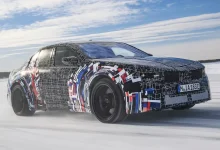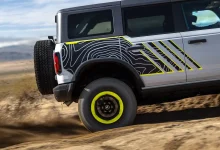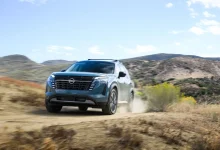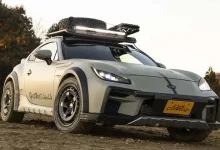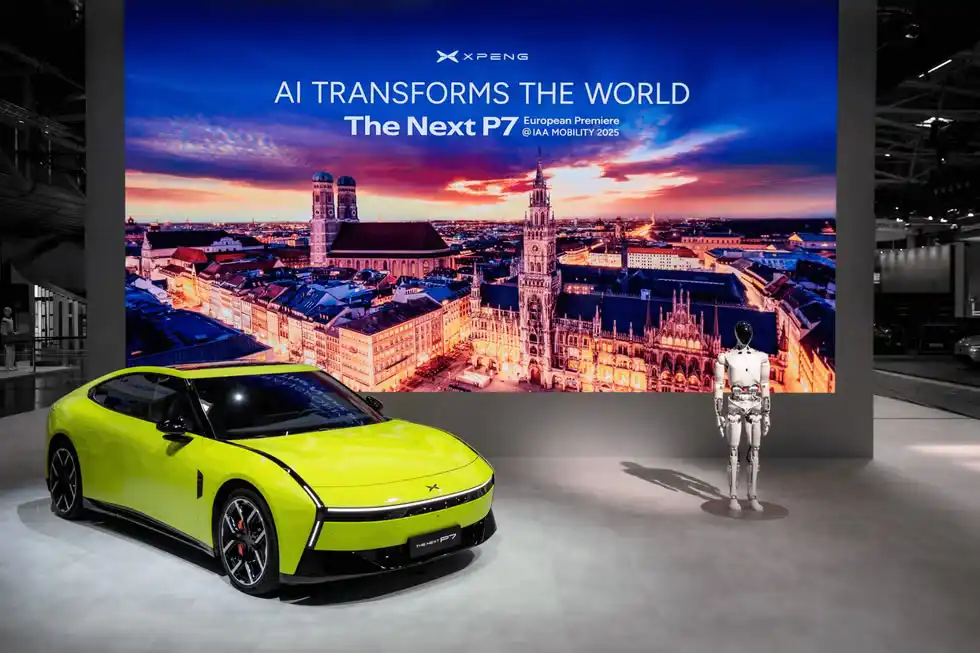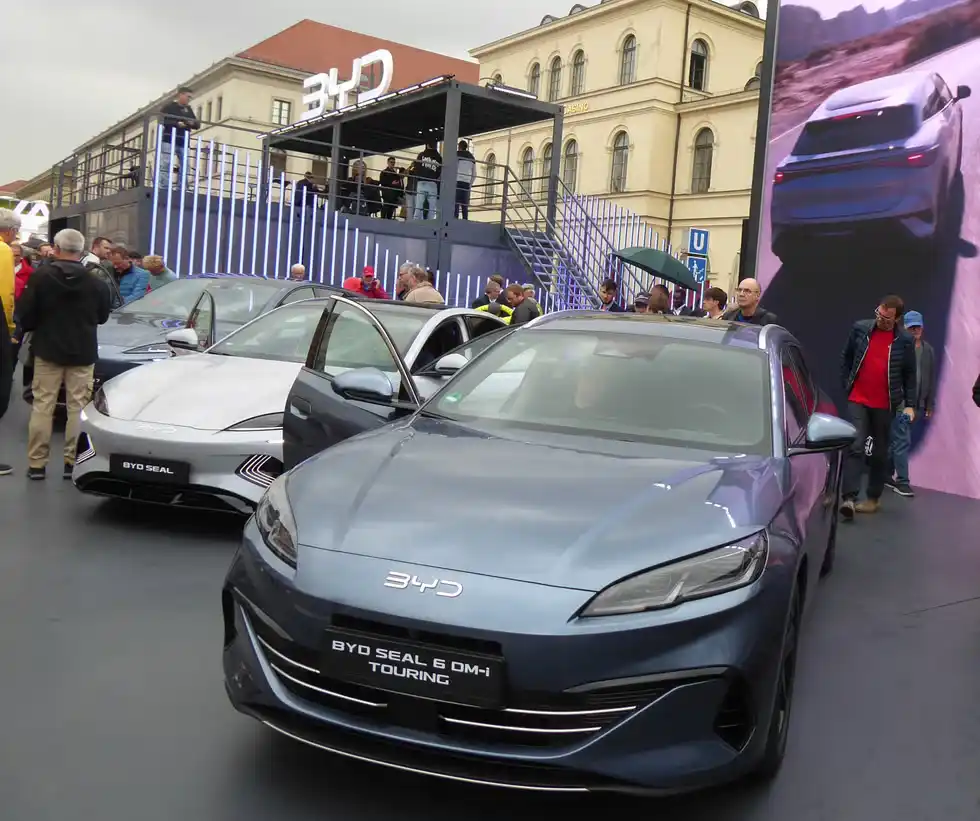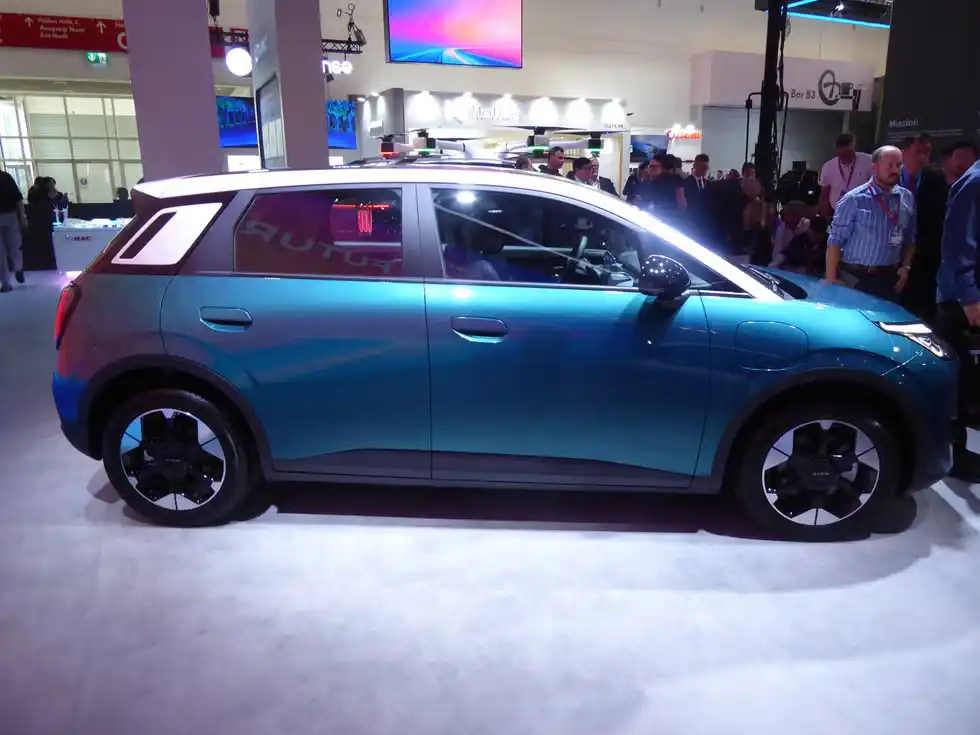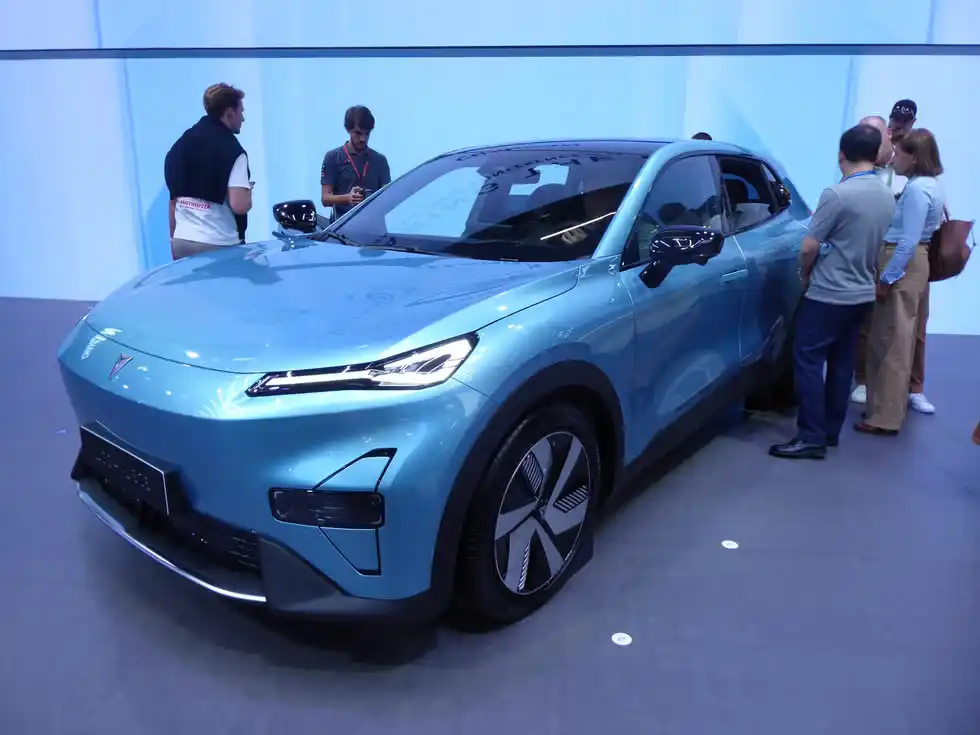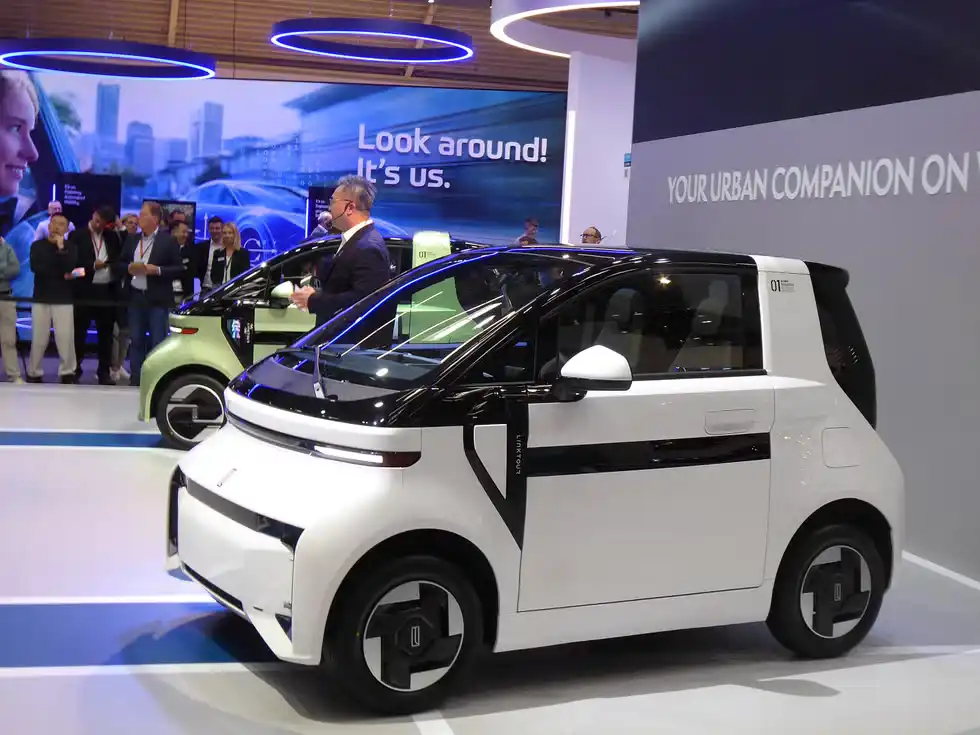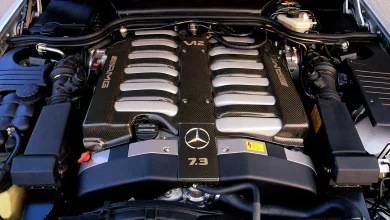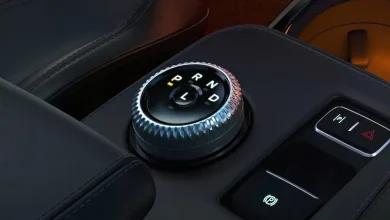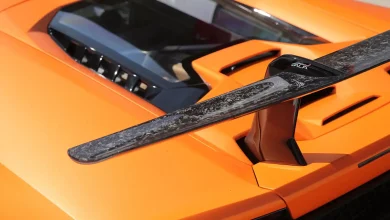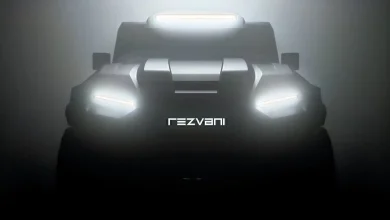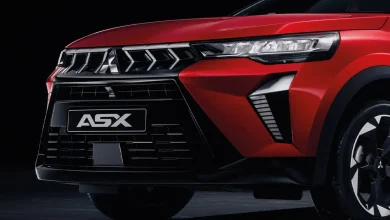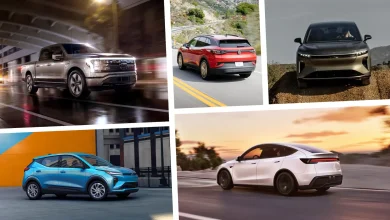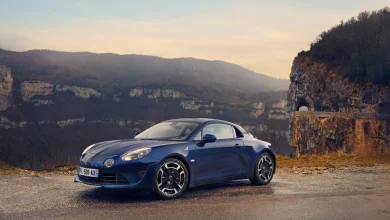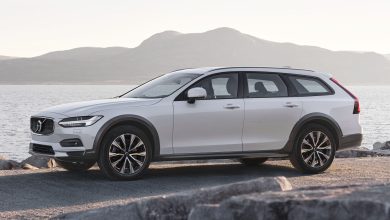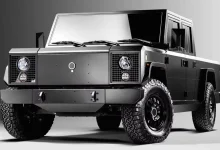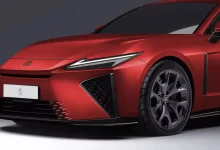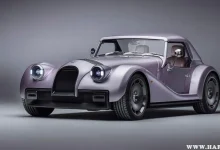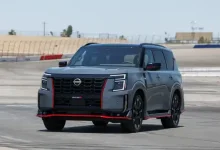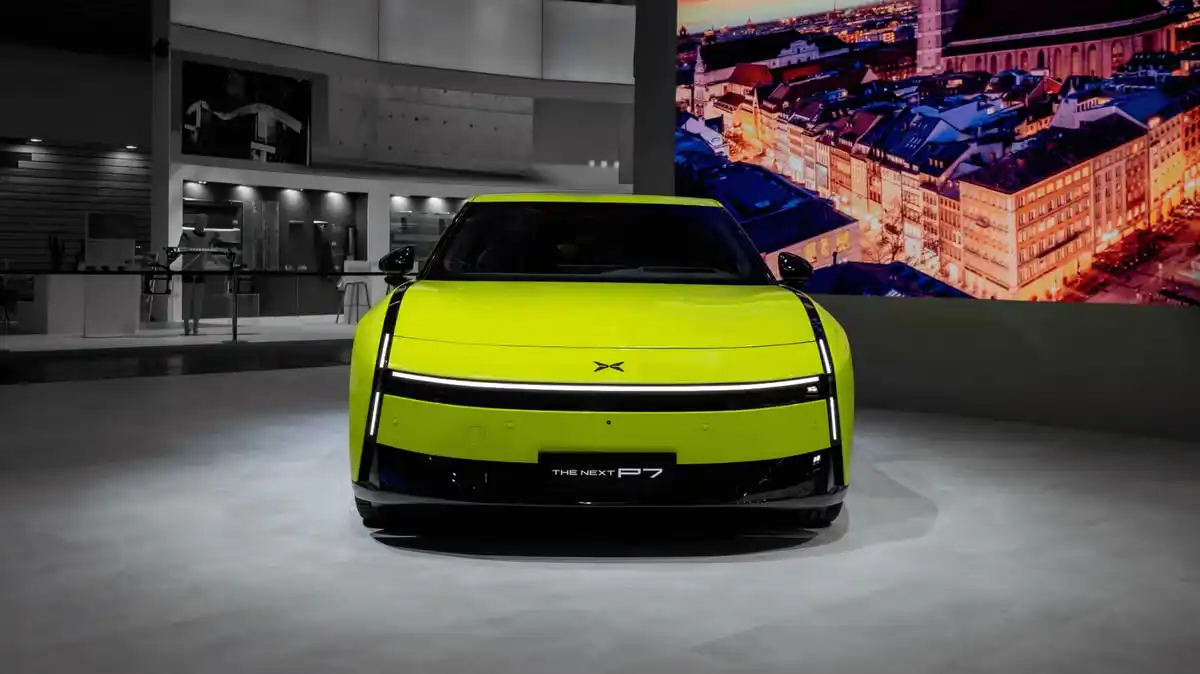
While auto shows always reveal numerous trends, one of the most striking at the 2025 Munich IAA Mobility is the bold expansion of Chinese electric carmakers into Europe and beyond, compensating for their near-complete exclusion from the lucrative U.S. market.
Chinese automakers, having moved beyond producing subpar vehicles solely for their domestic market, are now focused on electric cars, pushing the boundaries of innovation while also offering prices that undercut the competition.
XPeng exemplifies this trend. Largely unfamiliar to U.S. audiences, the company touts itself as being “AI to our core.” At Munich, it unveiled the European debut of the Next P7 coupe—strikingly presented in neon green. XPeng says the car delivers up to 585 horsepower, 438 lb-ft of torque, advanced computing and AI capabilities, accelerates from 0 to 62 mph in just 3.7 seconds, and tops out at 143 mph.
The company claims a P7 covered 2,461 miles in 24 hours, outperforming competitors from Porsche and Mercedes-Benz. The model made its debut in China last month, priced at $42,190, though pricing for the German market has not yet been announced.
As of August this year, XPeng has sold 271,615 vehicles—a 252% increase—while also operating 2,100 charging stations across China.
Brian Gu, vice chairman and president, noted that when XPeng first appeared at IAA Mobility in 2023, it was still an emerging brand. Today, he says, it has become “the world’s sixth-largest EV player, serving users in over 46 markets” and plans to keep expanding globally. This month, the company is opening its ninth European research center in Munich.
XPeng’s focus goes beyond just EV sales. The company plans to launch a mass-produced Level 4 autonomous vehicle next year and begin robotaxi trials shortly thereafter. Candice Yuan, senior director of autonomous driving at XPeng, highlighted that the company’s self-driving cars are already operating successfully on village roads in China.
Just when you might think XPeng engineers have enough to handle, the company is also planning to roll out a flying car, dubbed the “Land Aircraft Carrier.” It resembles a large drone emerging like a chrysalis from a six-wheeled Humvee-style vehicle. XPeng says it will be ready for mass production next year. According to Wang Tan, a founder of the AeroHT division, the factory is already built with an annual capacity of 10,000 units.
XPeng’s Tan predicts that flying cars could make up 20% of the market in 20 years, noting the company has invested $600 million in the technology. The company is also developing a humanoid robot, Iron, slated for release in 2026. Founded in Guangzhou in 2014, XPeng has only been active in Europe since 2021. Can the company achieve all of this by next year? Perhaps not—but it will certainly be exciting to watch them try.
At Munich, Stella Li, executive vice president of BYD, announced that the global EV leader’s Dolphin Surf will be the first BYD model manufactured in Europe. Production will take place at the new $4.64 billion factory in Szeged, Hungary, which is set to begin operations next year.
The compact Dolphin Surf, named World Urban Car of the Year in 2025, underscores BYD’s commitment to Europe. “Europe is a tremendously important market for us,” Li said. The company plans to establish 200 to 300 charging stations across the continent by the second quarter of 2026.
At BYD’s press conference, the company showcased the Seal 6 DM-I Touring, a hybrid station wagon—a body style that has waned in popularity in the U.S. but remains strong in Europe. The Seal 6 combi hybrid offers a range exceeding 800 miles. Beyond the main stage, BYD was also prominently featured in the free public displays around Munich, which drew huge crowds and hint at a potential model for revitalizing struggling American auto shows.
GAC chairman Feng Xingya told attendees in Munich that the company aims to “open a new chapter in Europe,” drawing on lessons from its automakers in producing high-quality, innovative vehicles. “Europe is our core strategic market,” he emphasized.
GAC’s European R&D center likely contributed to the development of the Aion V flagship—one of five “new energy” models showcased in Munich. The electric compact SUV will be available in Europe starting at €35,990 ($42,183). It boasts a five-star NCAP safety rating, batteries engineered to resist ignition even under gunfire, a WLTP-rated range of 316 miles, and rapid charging from 10% to 80% in just 24 minutes. European buyers can also take comfort in the company’s eight-year vehicle and battery warranties.
GAC is also developing a flying car, the Govy. This electric AirCar features vertical takeoff and landing, is fully autonomous, carries a single passenger, and is designed for on-demand ground and air taxi services.
Changan presented its Deepal S05, already considered dated by Chinese standards since it first went on sale in Q3 2024. The S05 comes as both a plug-in hybrid and a battery electric vehicle. The PHEV version offers 130 miles of electric range and a total of 766 miles when combined with the 1.5-liter gas engine and 27.28-kWh battery. The 235-horsepower EV variant delivers 316 miles of range via a 56.2-kWh battery.
Dong Li, chief technology officer at QCraft, told HARJA that the company, drawing on its Silicon Valley roots, is entering Europe “to help OEM automakers implement autonomous driving, from L2 to L4.” He expressed confidence in the company’s roadmap toward fully functional L4 technology. Li noted that QCraft’s robotaxi systems are already operating in 26 cities across China and Japan, serving 650,000 passengers, amid at least seven other major robotaxi operators in China.
Linktour showcased its tiny two-seat aluminum-bodied Alumi L6e and L7e, which, at just 210 pounds in body-in-white form, resemble slightly scaled-down Smart cars. The L6e is a neighborhood electric vehicle with a top speed of 28 mph and a 75-mile range from a 7.2-kWh battery. The higher-performance L7e can reach 55 mph and offers a 111-mile range via a 12.96-kWh battery. Both models are expected to be extremely affordable, with European sales planned.
Major Chinese battery supplier CATL unveiled a new LFP battery designed to reduce the risk of fire and smoke while maintaining performance for over an hour even after a thermal runaway event. The company is also investing in European production, aiming to be “in Europe, for Europe,” and is collaborating with automakers, material suppliers, recyclers, and local communities.
Much of the Chinese automotive activity remains unseen in the U.S., where only a handful of Chinese-made vehicles are on the roads. Maps of these companies’ expansion plans reveal a glaring gap over North America.
But that scenario could shift. Arnd Franz, CEO and chairman of thermal management giant Mahle, asked rhetorically what might happen if BYD—or another major Chinese automaker—approached Michigan Governor Gretchen Whitmer with a proposal for 6,000 local jobs from a large EV factory producing Asian vehicles in the U.S. I admitted I had no idea.
